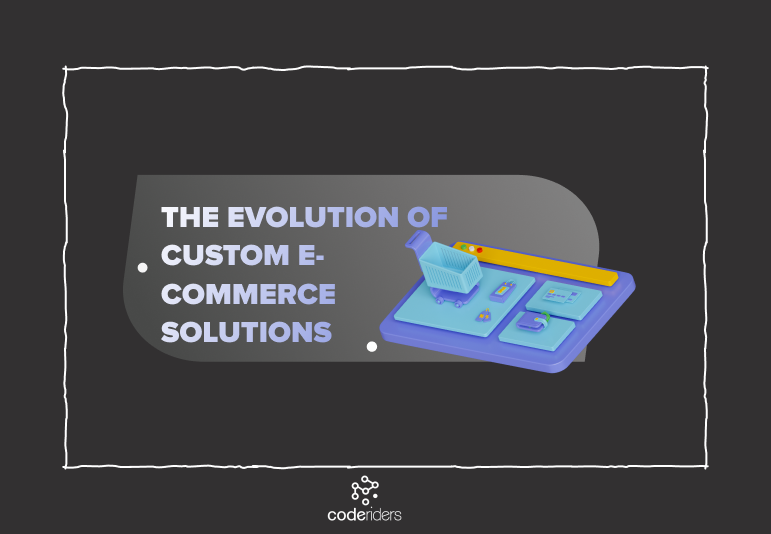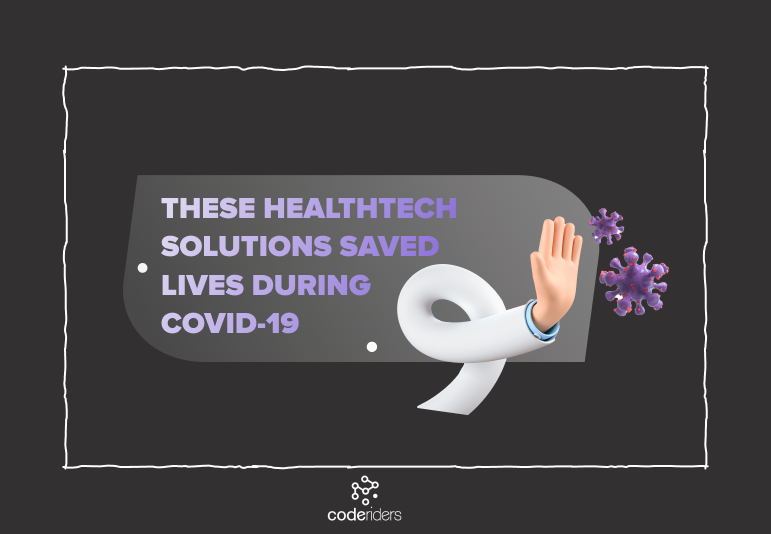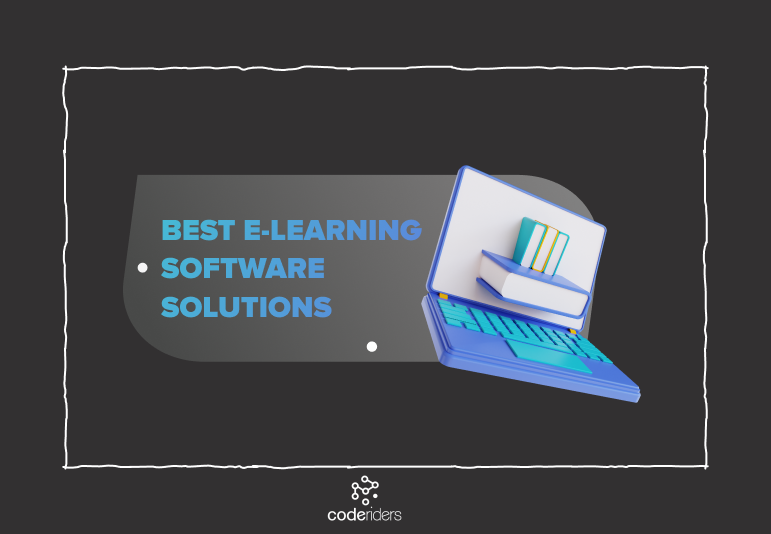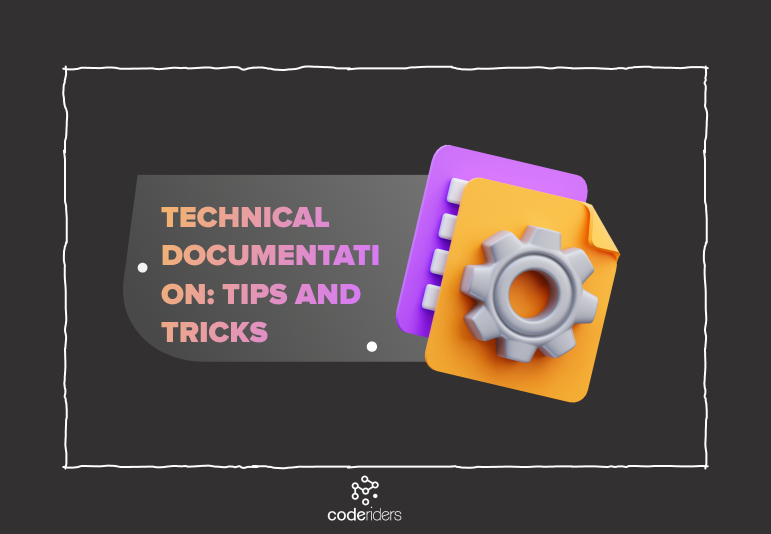People have a fantastic ability to adapt quickly to new life conditions. Several months have passed after the COVID-19 outbreak and what earlier seemed impossible to bear is slowly becoming a part of our lives.
From now on many things will never be the same. One of them is the limitations of in-person communications and the increasing demand for new digital opportunities. More advanced software solutions are slowly being implemented in almost every field of the economy including Retail and Wholesale. Thus, CodeRiders continues its series of articles about the most affected industries during the Coronavirus pandemic. We have already published articles about EdTech and Healthcare solutions, now we’re moving on with Retail solutions during the COVID-19.
Shopping Has Never Stopped
There is a term called Retail therapy - an act of shopping for reducing stress and lowering blood pressure. According to The University of Michigan Retail therapy is 40 times more effective method to relieve nerves and stress. Those that choose shopping during tense situations are 3 times happier than the ones that prefer something else.
This is not an exclusion for the Coronavirus lockdown as well. Shopping has never stopped, the only thing that has gone through a change is the way to buy products. The volume of online sales is becoming higher. Consequently, forward-thinking retailers robust online shops to hold control of their business in the market.
In this article, we'll speak about:
- Key recovery steps after the impact of Coronavirus in the Retail industry.
- The most common software solutions for Retail business owners.
- The rise of other Retail software solutions during the COVID-19.
For a detailed list of e-Commerce solutions and their feature list, you can explore the Retail and Wholesale section on CodeRiderswebsite.
Recovery Plan to Overcome the Impact of COVID-19
If you’re a Retail or e-Commerce business owner looking for ways to recover your business, this article is for you. Before jumping into the main software solutions to push more sales, let's have a quick look at 4 key factors that are critical for your business recovery plan.
Subscribe to Newsletters
1. Analyze your buyer personas and create new ones
If you already have a website and use customer behavior analyzes tools, track your potential buyer's journey on your website. Observe website visitors' behavior, such as where they go, what they click on, where they stop the most, the medium time they spend on your website, etc. If you don't have a website, you can observe your potential buyer’s journey throughout social media channels. There are many other ways to collect information, so choose the best convenient option for you, track and analyze the results. Meanwhile, if you’re a Retail business owner it’s highly advisable to have a virtual presence and develop a website. Create the ideal customer's image (buyer persona) during and after the Coronavirus pandemic, and draw your strategy accordingly.
2. Adjust your products or services to your customers’ needs
After getting the overall picture of your potential customer, compare the previous and new image, draw out the differences, and start adjusting your products or services accordingly.
3. Pay attention to your competitors' journey
Observe your competitors' strategy, compare with yours, and come out with an innovative idea. However, make sure not to copy others, but create unique solutions.
4. Embrace technology, automation, and innovations to implement these key steps
The Coronavirus lockdown became a reason for a huge increase in online sales. Be flexible to transfer your offline competition to an online platform. Use modern virtual Retail solutions during the COVID-19 to be innovative in the sphere. Meantime keep the selection and buying process simple and easy. Customers love exciting innovations and one-click easy solutions with minimum effort. Even a minor function chosen with consideration can work in your favor.

What Are the Most Common Software Solutions in the Retail Industry?
The above points were little tips for the rebirth of your business in the Retail industry during the Coronavirus pandemic. Now let's speak about the most crucial Retail solutions that can drive your business to ultimate success.
E-Commerce Software Solutions
E-Commerce, Electronic commerce, or Internet Commerce platform is an online shop where you can purchase or sell products or services. Typical examples of e-Commerce stores are Amazon, eBay, Quikr, Shopify, Olx, etc. Another very popular term is m-Commerce, which is the mobile version of an e-Commerce solution.
There are e-Commerce solutions both for B2B and B2C portals, small and medium-sized businesses, and enterprises that are either fully customized or are based on top-rated commercials and open-source platforms.
Many retailers choose e-Commerce solutions as they are very simple to use, cost-efficient, and provide quality customer services. E-Commerce software is also a great choice for those retailers that are looking for 24/7 online store availability and an endless opportunity to expand customer horizons regardless of time and location. Being part of Retail solutions, e-Commerce software usually provides fast and easily used website builders as well as previously ready-made templates. This means to have the whole ready-made website skeleton waiting for information input.
Most of the e-Commerce companies are in the Retail industry. However, e-Commerce software is often used by companies concentrated on Food and Beverage, Finance, Tourism and Hospitality, Business Services, PR and advertising services, and more.
What’s most important, e-Commerce software is quite cost-efficient. Business owners don't have to hire additional physical stores and employees. They pay it once to a software development team and use it forever. Mind a little tip here, good software development companies provide software support after the project-end as well. Consistent software support and maintenance is also an asset at CodeRiders after the project completion.
E-Commerce software solutions have some key features about which we’ll speak below.
Inventory Control Software
It's hard to imagine a good ROI (Return on Investment) without an organized and controllable inventory. Businesses usually don't save money on a high-quality inventory control system.
Inventory control software includes a set of business applications that gather, track, manage, and organize product or service purchasing processes. It cuts out time spent on basic tracking, organizing, storing, and updating information. Consequently, the number of employees that should have been hired for the above roles decreases. Employees usually get access to certain or the whole tabs of inventory. They input information manually, share it with co-workers, do updates. On the other hand, the automated system tracks, records, gathers order details, and analyzes products.
- Accounting system automates invoices, shows product rates, percentages, and VOI (Value on Investment), as well as provides multi-currency pricing systems.
- Sales reports allow employees to generate sales history, previous losses, or gains by specific channels.
- Rate lists allow you to manage custom prices.
- Order campaigns let you create sales and coupons according to account channels, dates, customers, locations, products.
- Barcodes, radio-frequency identification (RFID), and wireless tracking technology solutions are usually included in the software and highly support tracking and control. These services help avoid any duplications, errors in invoices, or orders.
CMS (Content Management System) Customization
This software is especially convenient for businesses that have security concerns or corporate security requirements. Despite an open-source CMS, which has a thread of being attacked, customized CMS is more reliable and chances of being broken are at a minimum. Custom made Content Management System is a proprietary solution of a specific company. By choosing your custom CMS you get control over your platform’s functionality, interface and, updates. In other words, a custom CMS allows you to build a site that will follow your business needs.

Product Promotion Tool Development
Product promotion tool is often built for companies that prefer to make their promo campaigns. The tool usually allows organizations of 4 types of promotion: advertising, sales promotions, personal selling, and publicity.
Social Media API Integration
You can use social media as a marketing tool for an e-Commerce store. Social media API development will enable your store to use social media for building brand awareness, attracting online followers, and generating online sales.
Payment Gateway Integration
The payment gateway is a secure third-party solution between online merchants, e-businesses, and customers. The solution gives the opportunity to securely process and authorize payments or transactions from customers to the merchants’ bank accounts. Compare payment gateway as a digital alternative to a cashier or a point-of-sale terminal. With the help of the payment gateway process, the customers place the order on the website. Afterward, the merchant securely transfers the information to the payment gateway, where customers pay by their preferred method. The transaction passes to the corresponding bank to request transaction authentication. After successfully completing the above steps payment gateway sends the appropriate information to the merchant. The bank settles the money through the payment gateway which settles money to the merchant.
ERP (Enterprise Resource Planning) Software and Its Integration
ERP software manages the whole business process by automating back-office functions related to technology, business, or HR through integrated applications. ERP integration connects and synchronizes ERP software with other business applications such as e-Commerce, CRM (Customer Relationship Management), EDI (Electronic Data Interchange) as well as marketing tools.
This is usually crucial for large companies with a lot of human resources. The ability to be integrated with e-Commerce applications makes ERP flexible, scalable, and customizable.
Subscribe to Newsletters
Custom Shipping API (Custom Shipping Application Programming Interface)
A Custom Shipping API is built to connect the merchants and e-business owners with individual shipping and delivery services. With custom shipping API, the order information is sent to the shipping services, and shipping rates are received from them. The information includes the shipping origin address, and its destination, names, prices, the weight of the shipping items. After the information is sent, the store waits for a response from the shipping carrier to display their rates.
The advantage of custom shipping API is the ability to streamline shipping without additional expensive hardware or software. The API is often used to network shipping activities in various retail locations or branch offices. Large co-operations benefit from settling mailrooms with it.
E-Commerce Shopping Cart
A shopping cart is a little part of the software that accelerates the purchase of the product or service on the retailer’s website. Its main functions include organizing customers’ payments, sending corresponding information to retailers, payment gateway, or the other parties involved. Having an advanced shopping cart is extremely important for retailers’ websites as it bridges the gap between shopping and buying.
Third-Party Extensions
The integration of third-party apps, extensions, and plugins is a way to grow and boost your brand awareness, push more sales, enhance the performance, functionality, and usability of the e-Commerce website.
The Rise Of Other Retail Software Solutions During COVID-19
Following the rise of the COVID-19 pandemic, most of the above-enumerated solutions are going under respectable updates, hence more advanced solutions are being implemented. Below we will speak about today’s popular and developing solutions in the Retail and Wholesale industry. To learn more about e-Commerce I suggest checking out CodeRiders e-Commerce services. If you’re looking for more or have something else in your mind you’re welcome to drop us a quick message.
C-Store (Convenience Store) and Grocery
C-store stands for small retail businesses that stock a range of everyday items, such as tea/coffee, fruits/vegetables, groceries, snack foods, soft drinks and cigarettes, newspapers and magazines, and other merchandise. The need for C-stores is highly growing especially nowadays during the COVID-19 pandemic when people prefer to order food online instead of visiting shops or restaurants. So, for C-stores, it’s very crucial to have a competitive, user-friendly website and a mobile application.
Some most common C-store integrations include:
-
Grocery store POS (Point of sales)
This is a great example of inventory management platform for real-time stock information. It’s used to automatically generate Economic Order Quantities (EOQ) with alarm and notification capabilities.
-
C-store inventory modules
The inventories provide such functionalities as fleet management, delivery tracking, EPOD (Electronic Proof of Delivery), and more.
-
C-store HCM Modules
HCM modules stand for Human Capital Management modules that are built for scheduling, time tracking, payroll, and more.
-
Brick and Mortar retail solutions and analytics
Brick and Mortar stores stand for “offline stores”. These are custom software development solutions aimed at finding products’ locations, services, and digital signage. They also include Business Intelligence and Data Warehousing functionalities. This software can be connected with CRM, inventory management systems, sales tracking, and allows custom report creations and loyalty rewards.
E-Commerce Mobile Application or M-Commerce
Mobile apps are trending up day by day. It is said that 67% of e-commerce sales come from mobile apps. Thus, it’s obvious that e-Commerce stores start investing in m-Commerce as well. M-Commerce can be more convenient for the customers, have better user engagement results, and more functionalities. It’s especially very important during the Coronavirus lockdown. Most common m-Commerce stores include such services as:
- Authorization
- Setting push notifications
- Catalog with categories
- Various payment methods
- Purchase tracking opportunity
- Shopping cart
- Customer support
According to a Statista report, the rise of m-Commerce mobile sales is equal to all of the e-Commerce market from 25-40% in 2018 and is forecasted to be 50% more of the whole e-Commerce field.
In-Store Custom-Knit Apparel Technology
As the name tells itself, this solution is made for the Clothing and Textile industry. Custom-knit apparel technology gives a chance to digitally customize each product for a specific customer. An ideal solution for giving the customer exactly what he/she needs even in distance.
Adidas is among one of the first companies to try the new in-store machine. According to Reuters' report customers design their own sweaters in the Adidas store in the Berlin mall and then wait a few hours to take their custom-made knitted, washed, and dried product. The process includes a body scan, dozens of possible options recorded for the customers to choose their favorite one on a computer screen, a possibility to experiment with various color combinations, and finally industrial knitting machines at the store for an immediate tailor-made product.
get to know our team and software solutions
So, It’s All About Virtualization
To sum up, as you can see there is a wide variety of software solutions in the Retail industry. As an individual business owner, it’s very crucial to analyze your own business and find the best customized solution that will help your business grow and increase your ROI.
The increasing demand for online sales during COVID-19 lights up and refreshes Retail and Wholesale businesses to think about new software solutions that will attract customers during the lockdown.
Having
development
needs?
CodeRiders will address your web and mobile development challenges by creating custom software, helping with outsourcing services, or just consulting on your software development requirements.














